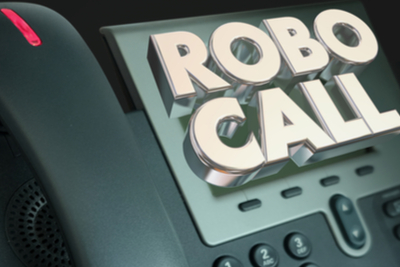
In a closely monitored case, the U.S. Supreme Court today upheld the restriction on robocalls under the Telephone Consumer Protection Act (“TCPA”) of 1991 but struck the Act’s government debt-collection exclusion. Many followed this case, anticipating it would result in a fatal blow to the TCPA. But today’s opinion extinguished these hopes.
In response to consumer complaints, Congress passed the TCPA to prohibit robocalls to cell phones, among other things. 47 U.S.C. 227(b)(1)(A)(iii). In 2015, Congress amended the robocall restriction, carving out a new government-debt exception that allows robocalls made solely to collect a debt owed to or guaranteed by the United States. 129 Stat. 588.
In 2016, the plaintiffs, political and nonprofit organizations, filed a declaratory judgment action in the United States District Court for the Eastern District of North Carolina, claiming that the TCPA (§227(b)(1)(A)(iii)) violated the First Amendment. Plaintiffs sought the ability to make political robocalls to cell phones. Invoking the First Amendment, plaintiffs argued that the 2015 government-debt exception unconstitutionally favored debt-collection speech over political and other speech, and asked the Court to invalidate the TCPA’s entire restriction on robocalls. The District Court held that the government-debt carve-out was content-based but withstood strict scrutiny. The Fourth Circuit disagreed, invalidating the 2015 exception and holding that the content-based restriction did not survive strict scrutiny.
The Supreme Court affirmed the Fourth Circuit, striking down the 2015 carve-out permitting debt-collection robocalls for government debt. However, the Supreme Court was wildly divided in its reasoning. Justice Kavanaugh announced the judgment and opinion of the Court, concluding that the 2015 government-debt exception can be severed from the underlying TCPA robocall restriction. He wrote that severing this relatively narrow government-debt collection carve-out to the broad TCPA robocall restriction cured the First Amendment unequal treatment problem and did not raise any other constitutional problems.
The remaining justices filed or joined in separate opinions, with the underlying reasoning varying widely. But despite the number of opinions, one thing was clear: the Supreme Court seemed persuaded by Americans’ disdain for robocalls and the staggering number of complaints the Federal government and states receive about them. “As a result, the plaintiffs still may not make political robocalls to cell phones, but their speech is now treated equally with debt-collection speech.” Barr v. Am. Ass’n of Political Consultants, No. 19-631, July 6, 2020, slip op. at 2.
Some might argue that the decision sacrifices the right of free speech for the sake of rescuing a bad statute, and that technological advances should be largely responsible for preventing unwanted robocalls—not the TCPA. What is yet to be seen, though, is whether the Court’s opinion might offer relief to companies facing TCPA challenges.
To sign up for email updates from the NextGen Financial Services Report, Click Here.

